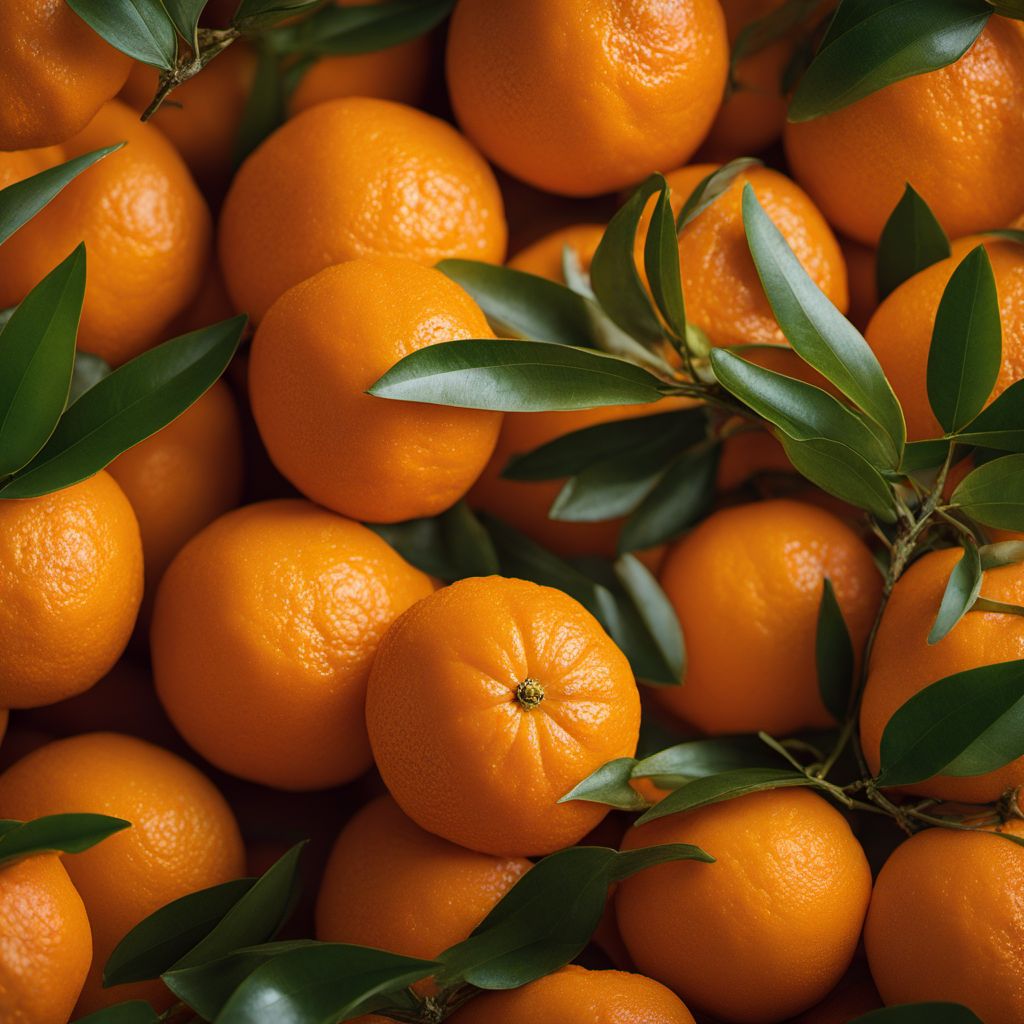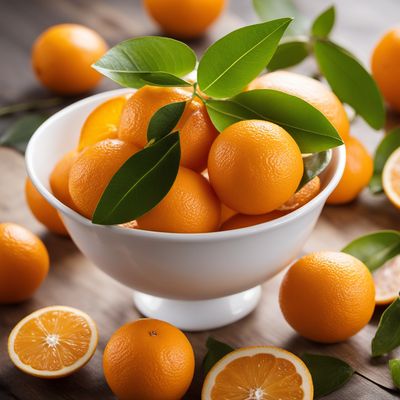
Ingredient
Mediterranean mandarins
Sun-Kissed Citrus Delight
Mediterranean mandarins are small, round citrus fruits with a bright orange peel that easily separates from the segments. They have a sweet and tangy flavor, with a hint of floral notes, and a juicy, tender texture. These mandarins are known for their vibrant color and refreshing taste, making them a popular choice for snacking, salads, desserts, and beverages.
Origins and history
Mediterranean mandarins have a rich history dating back to ancient China, where they were considered a symbol of good luck and prosperity. They were later introduced to the Mediterranean region, where they thrived in the warm climate and fertile soil. Today, Mediterranean mandarins are widely cultivated in countries such as Spain, Italy, Greece, and Turkey. They are not only cherished for their culinary uses but also for their cultural significance in various Mediterranean traditions and celebrations.
Nutritional information
Mediterranean mandarins are a good source of vitamin C, providing a boost to the immune system. They also contain dietary fiber, which aids in digestion, and are low in calories, making them a healthy snack option. Each medium-sized mandarin contains approximately 47 calories.
Allergens
Mediterranean mandarins are not known to be allergenic.
How to select
When selecting Mediterranean mandarins, look for fruits that are firm, heavy for their size, and have a smooth, glossy skin. Avoid any mandarins with soft spots, blemishes, or signs of mold. The best mandarins will feel plump and have a fragrant aroma.
Storage recommendations
To maintain the freshness of Mediterranean mandarins, store them in a cool, dry place away from direct sunlight. They can be kept at room temperature for a few days or refrigerated for up to two weeks. For longer storage, peel and freeze the mandarin segments in an airtight container.
How to produce
Mediterranean mandarins can be grown in regions with a Mediterranean climate, characterized by mild winters and hot, dry summers. They require well-drained soil and plenty of sunlight. With proper care and regular watering, amateur gardeners can enjoy the satisfaction of growing their own fresh mandarins at home.
Preparation tips
Mediterranean mandarins can be enjoyed as a healthy snack on their own or added to fruit salads, green salads, or smoothies. They can also be used to make tangy marinades, flavorful sauces, or refreshing sorbets. Additionally, their zest and juice can enhance the flavor of baked goods, such as cakes, muffins, and tarts.
Culinary uses
Mediterranean mandarins are commonly used in Mediterranean and Middle Eastern cuisines. They are a staple ingredient in dishes like Moroccan tagines, Greek salads, and Turkish desserts. Their bright flavor and vibrant color make them a popular choice for garnishing cocktails and desserts as well.
Availability
Mediterranean mandarins are commonly available in countries such as Spain, Italy, Greece, and Turkey.
More ingredients from this category

Other hybrids of Citrus reticulata, not elsewhere mentioned
Citrus Reticulata Hybrids: Unveiling the Zesty World of Citrus Delights

Mandarins
The Citrus Jewel

Calamondins
The Zesty Jewel of Citrus

Tangors
The Zesty Hybrid: Unveiling the Tangors' Citrus Symphony

Minneolas
The Citrus Gem

Tankan mandarin
The Citrus Jewel

Tangerines
The Tangy Delight

Clementines
Sunshine in a Peel: Clementines

Satsumas
Sweet and Tangy Citrus Delights

Cleopatra mandarins
The Citrus Jewel: Discover the Allure of Cleopatra Mandarins